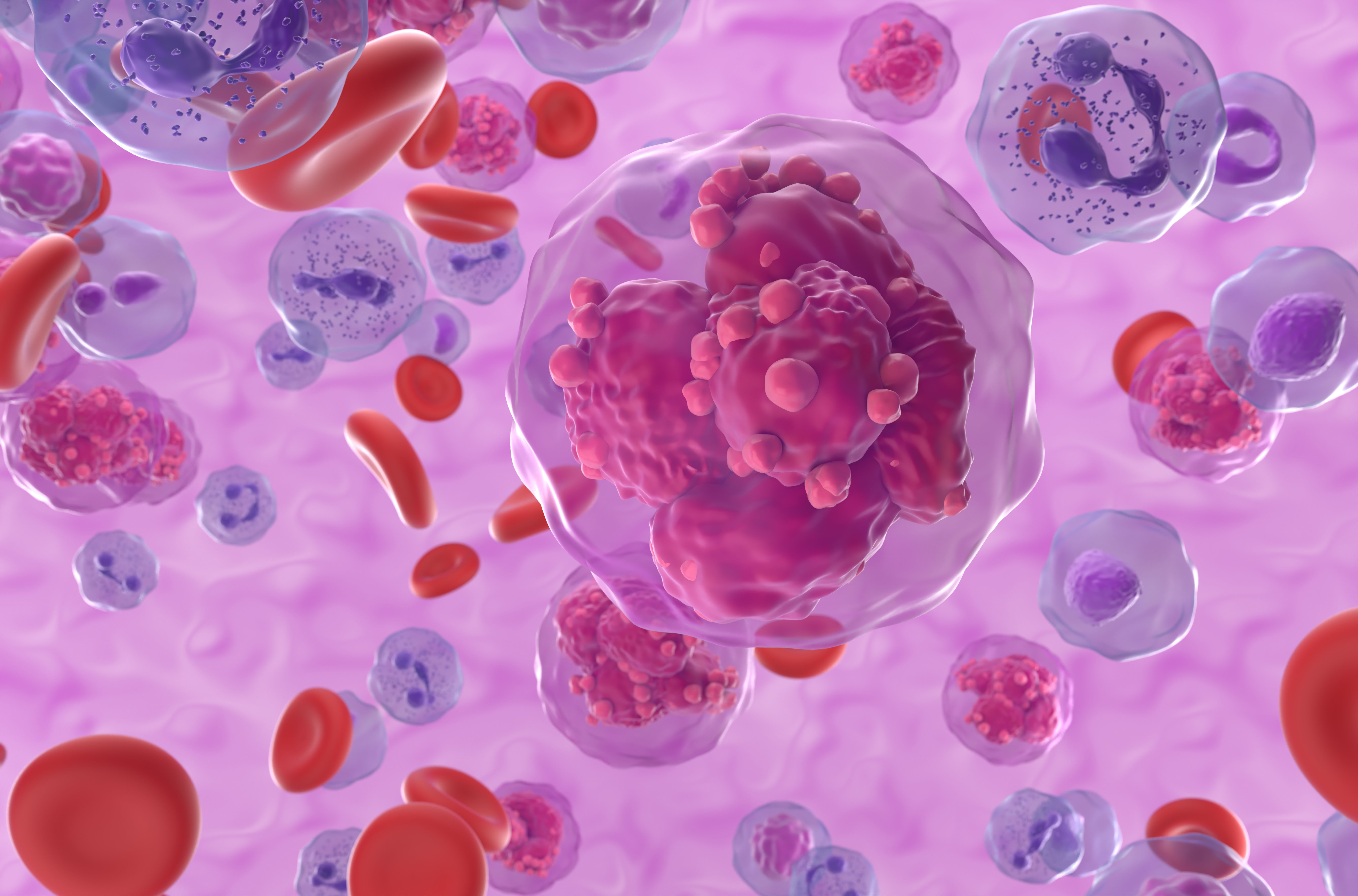FDA Wraps Up End Of Phase 2 Meeting for AML Combination Therapy
The completion of the End of Phase 2 meeting for the phase 1B/2 trial of annamycin and cytarabine in acute myeloid leukemia has been announced.

- The End of Phase 2 (EOP2) meeting between and FDA and Moleculin Biotech, Inc. for the phase 1b/2 trial of the combination of annamycin and cytarabine (Ara-C) in patients with acute myeloid leukemia (AML) has been completed.
- The MB-106 trial (NCT05319587)is evaluating the combination for the treatment of patients with AML when given as first-line therapy and for patients who are refractory to or relapsed following induction therapy.
- Information from the meeting will be announced upon receipt of official minutes from FDA.
The EOP2 meeting between the FDA and Moleculin Biotech, Inc. regarding the phase 1b/2 trial of Ara-C in AML as a first-line treatment and for those who have relapsed or are refractory following initial induction therapy has concluded.1
Second-line treatment results from the ongoing MB-106 clinical trial were reported on June 14, 2024, and supported the EOP2 meeting. In this study, 22 patients were enrolled in the intent-to-treat (ITT) population, 20 of whom completed efficacy evaluations. Nine (45%) patients reached a composite complete remission (CRc), including 8 (40%) with CR and 1 with CR with an incomplete recovery of peripheral blood counts (CRi) after receiving treatment with Ara-C. Two additional patients who were enrolled and treated are awaiting efficacy outcomes.
Ten patients in the ITT population received Ara-C in the second-line setting. Of these patients, 5 achieved a CR (50%) and 6 achieved a CRc (60%). Seven of 13 patients in the ITT-evaluable population that were on first- or second-line treatment had a CR (54%) and 8 had a CRc (62%). Further, the median duration of response (DOR) among the 9 patients who achieved a CRc is approximately 7 months.
No patients in the first-line setting have been treated yet.
Acute myeloid leukemia (AML) cells in blood flow - isometric view 3d illustration: © LASZLO - stock.adobe.com

"The Moleculin team, along with our regulatory advisors and key opinion leaders, discussed with FDA the MB-106 safety and efficacy clinical findings and proposed next steps for our AML clinical development program," commented Walter Klemp, chairman and chief executive officer of Moleculin, in a press release. "We are grateful to the FDA for what we consider to be a very productive meeting and look forward to reporting its outcome before the end of August."
Annamycin, a next-generation anthracycline designed to be non-cardiotoxic, has demonstrated that it can accumulate in the lungs at up to 30-fold the level of doxorubicin in preclinical models.2 The FDA has granted the agent fast track status and an orphan drug designation for the treatment of relapsed/refractory AML, as well as an orphan drug designation for treating soft tissue sarcoma. The European Medicines Agency has also granted an orphan drug designation to the agent for the treatment of relapsed/refractory AML.
About the Phase 1b/2 Trial
In the ongoing open-label, multicenter, dose-escalation trial, investigators aim to determine the maximum tolerated dose (MTD) and recommended phase 2 dose (RP2D) of annamycin in combination with cytarabine for the treatment of patients with relapsed/refractory AML. Phase 1b, the dose-escalation portion of the study, will utilize a standard 3+3 design and a group of 3 patients will be treated with an intravenous infusion of 190-mg/m2 of annamycin for 3 consecutive days. Dose-escalation will occur based on safety assessments in sequential cohorts of 3 subjects each.3
Enrollment is open to patients aged 18 years and older with AML that are refractory to or relapsed after induction therapy; have received no investigational therapy within 4 weeks of the first dose of study treatment or no chemotherapy, radiation, or major surgery within 2 weeks prior to first dose of treatment; and who have recovered from toxicities associated with their therapies, unless treatment is indicated as a result of progressive disease. Patients are required to have an ECOG performance status of 0 to 2, an HCT-CI score of 0 to 2, and adequate laboratory results. Additionally, men and women of childbearing potential must agree to use contraception during the duration of the trial and after discontinuing the study treatment.
The primary end point of the study is to evaluate the MTD and RP2D of the combination. Secondary end points include pharmacokinetics and anti-leukemic activity.










